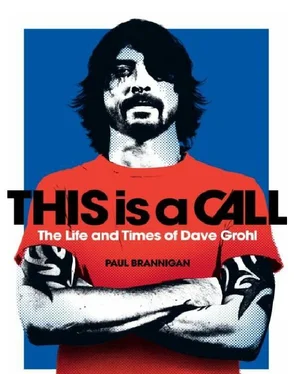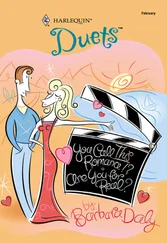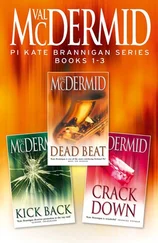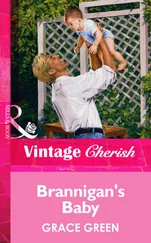Paul Brannigan - This is a Call
Здесь есть возможность читать онлайн «Paul Brannigan - This is a Call» — ознакомительный отрывок электронной книги совершенно бесплатно, а после прочтения отрывка купить полную версию. В некоторых случаях можно слушать аудио, скачать через торрент в формате fb2 и присутствует краткое содержание. Город: Cambridge, MA, Год выпуска: 2011, ISBN: 2011, Издательство: Da Capo Press, Жанр: Биографии и Мемуары, на английском языке. Описание произведения, (предисловие) а так же отзывы посетителей доступны на портале библиотеки ЛибКат.
- Название:This is a Call
- Автор:
- Издательство:Da Capo Press
- Жанр:
- Год:2011
- Город:Cambridge, MA
- ISBN:978-0-306-82051-9
- Рейтинг книги:3 / 5. Голосов: 1
-
Избранное:Добавить в избранное
- Отзывы:
-
Ваша оценка:
- 60
- 1
- 2
- 3
- 4
- 5
This is a Call: краткое содержание, описание и аннотация
Предлагаем к чтению аннотацию, описание, краткое содержание или предисловие (зависит от того, что написал сам автор книги «This is a Call»). Если вы не нашли необходимую информацию о книге — напишите в комментариях, мы постараемся отыскать её.
Nevermind
This is a Call — читать онлайн ознакомительный отрывок
Ниже представлен текст книги, разбитый по страницам. Система сохранения места последней прочитанной страницы, позволяет с удобством читать онлайн бесплатно книгу «This is a Call», без необходимости каждый раз заново искать на чём Вы остановились. Поставьте закладку, и сможете в любой момент перейти на страницу, на которой закончили чтение.
Интервал:
Закладка:
Prior to the arrival of Black Flag there was no national grassroots touring circuit for America’s punk bands. That group’s pioneering attempts to establish a network, using phone numbers bassist Chuck Dukowski copied from the sleeves of the earliest hardcore seven-inch singles, was partly born out of necessity – by 1981 Black Flag’s hometown shows were notorious for pitched battles between punk kids and the brutal LAPD, making it increasingly difficult for the band to secure bookings anywhere – and partly derived from Greg Ginn’s desire to replicate the violent, untrammelled energy of his group’s LA shows in every town and city in the union. For Ginn and Dukowski, the idea of stepping into the unknown to confront and challenge was integral to the punk rock experience.
‘We like to play out of town,’ Ginn told Flipside in December 1980. ‘You’ve gotta threaten people sometimes.’
‘We think everybody should be subjected to us, if they like it or not,’ the guitarist added in another interview.
‘There’s more impact in playing for people who aren’t just soaking up the punk thing,’ Dukowski explained to Outcry fanzine in 1980. ‘It’s actually more stimulating to play for an audience that has not heard it and probably has a prejudice against it.You almost don’t know what to do when you’re in front of people who love it. It’s much easier when you’re in front of people who are sort of neutral or anti what you’re doing. You get all these people out there who’ve never seen it, don’t know what to expect and you get out there and blow ’em away.’
‘Greg Ginn had a ham radio thing as a teenager and through that he knew all about fucking up people from other towns – he just extended that to the idea of playing gigs,’ explains Mike Watt, now playing with The Stooges, then the bassist with Black Flag’s SST labelmates/touring partners, San Pedro agit-funk punks The Minutemen. ‘Before Black Flag there was no template. We literally had to invent this thing for ourselves. The rock ’n’ rollers really hated punk, so it was hard to play their clubs, so we’d play ethnic halls, gay discos, VFW halls, anywhere that would have us, because we also learned from Black Flag that when you ain’t playing you’re paying.’
Black Flag seemed to invite confrontation – whether this be with cops, promoters or indeed their own fans – with their every move, and each day on the road brought both fresh challenges and familiar entanglements. Henry Rollins’s Black Flag tour diaries, published in 1994 as Get in the Van , offer the most searing account of the experience of touring the USA in a hardcore band in the early 1980s, mapping out the scene’s lawless, anarchic landscape with unflinching detail. Rollins’s diary entry for 7 July 1984 was not untypical:
In the middle of the show, I took a knife off a guy and started swinging it at people in the front row. I put my other hand in front of my eyes so that they could see that I couldn’t see. I hope it bummed them out. Next, a guy handed me a syringe that looked full. He said that there was coke in it. I took it and threw it into Greg’s cabinet screen. It stuck like a dart. After the show, some fucked-up guy was trying to crawl into the van with us. I pulled out Dukowski’s .45 and put the barrel on the man’s forehead and told him to get the fuck away.
On the road Minor Threat themselves faced trouble at every turn. The didactic tone of their EP infuriated just as many punks as it inspired, with many of the group’s detractors interpreting MacKaye’s militant lyrics as a personal assault upon their lifestyle. Each night on tour MacKaye faced drunken hecklers and macho lunkheads hellbent on imparting a little attitude adjustment of their own. With tedious regularity, violence ensued.
Such hostility only added to the escalating stresses of life on the DIY circuit. Money was tight, drives were long and mind-numbing, comforts were scarce. Soon enough, the band was at war not just with the outside world, but also within: internecine arguments raged around divergent views on questions of materialism, ethics, aspirations and intentions. Yet, for all the bullshit they encountered, Minor Threat in full flight were truly transcendent, providing a visceral experience few bands of their generation could hope to match. ‘Ian MacKaye sings with more meaning and honesty than anyone I have seen,’ noted a reviewer for Flipside when the band played The Barn in Torrance, California in July 1982. ‘The crowd went nuts singing along with every song. If you miss these guys live I feel sorry for you.’

While Ian MacKaye and his friends travelled America’s highways and byways inspiring and empowering a new nationwide punk rock community, back in Washington DC Dave Grohl was embarking upon his own personal revolution.
To mark his allegiance to the punk tribe, in 1983 he gave himself his first tattoo using a needle and pen ink, a primitive technique he picked up from watching Christiane F. – Wir Kinder vom Bahnhof Zoo (We Children from Bahnhof Zoo) , a 1981 film about the drugs scene in seventies Berlin. His intention was to ink Black Flag’s iconic four bars logo on his left forearm: he managed to etch three of the four bars into his flesh before the pain proved too much to handle.
Guided by Tracey Bradford’s recommendations, and the reviews of records he read in Flipside and its more politically conscious San Franciscan counterpart maximumrocknroll , he began seeking out punk rock wherever he could find it, the noisier and nastier the better.
‘Dave and I played lacrosse in junior high school and we went to a lacrosse camp at the University of Maryland the summer we were turned on to punk rock,’ remembers Larry Hinkle. ‘We both had a little spending money that week, and during a break we checked out the university’s student union book store and record store. I bought some stupid souvenir like a baseball cap or shorts or something, but Dave bought an Angry Samoans record, Back from Samoa , from the record store. It was one of his first punk records and he couldn’t wait to get home and listen to it at the end of the week. I remember asking him why he would buy a record at a lacrosse camp when he could spend his money on some cool crap like I had. I don’t remember exactly what he said, but he definitely couldn’t care less about all that stupid souvenir shit. From then on, it was all about the music.’
‘The first hardcore record I fell in love with was a maximumrocknroll compilation called Not So Quiet on the Western Front ,’ Grohl recalls. ‘It was a double LP with over 40 bands from the Bay Area, so it had everyone from Flipper to Fang to M.D.C. to Pariah, and that and the Dead Kennedys’ In God We Trust and Bad Brains’ Rock for Light , those were the first three records I absolutely fell in love with. And to be honest, that’s all you need, that’s enough.
‘I was so excited by this new discovery that it became all I would listen to. I didn’t have time to listen to my old Rush and AC/DC records. I didn’t dislike them and I didn’t disown them, I was just too busy trying to find something new. It was exciting to buy albums that were a total mystery until the needle dropped. I remember buying an XTC single because I thought it would sound like GBH – I love XTC now, but goddammit at the time I was really pissed off that I’d spent those $5 on that single! But punk rock and industrial noise is a slippery slope: you start with something like The Ramones and go, Wow, now I want something faster! And then you get to D.R.I. and you go, Wow, I want something noisier! And then you get to Voivod and it’s, I want something crazier! And then you get to Psychic TV and go, I want something more insane! Pretty soon you wind up just listening to white noise and thinking it’s the greatest thing ever. But while I was listening to hardcore punk my sister Lisa was listening to Siouxsie and the Banshees and R.E.M., and we’d sometimes meet in the middle, say on Hüsker Dü. So through her I discovered Bowie and Talking Heads and stuff like that. To this day I credit her with a lot of musical influence, because had I not had an older sister like Lisa I would not have heard [Buzzcocks’] Singles Going Steady or [R.E.M.’s] Murmur or [Talking Heads’] Stop Making Sense . There was a lot of cool music in my house.’
Читать дальшеИнтервал:
Закладка:
Похожие книги на «This is a Call»
Представляем Вашему вниманию похожие книги на «This is a Call» списком для выбора. Мы отобрали схожую по названию и смыслу литературу в надежде предоставить читателям больше вариантов отыскать новые, интересные, ещё непрочитанные произведения.
Обсуждение, отзывы о книге «This is a Call» и просто собственные мнения читателей. Оставьте ваши комментарии, напишите, что Вы думаете о произведении, его смысле или главных героях. Укажите что конкретно понравилось, а что нет, и почему Вы так считаете.












